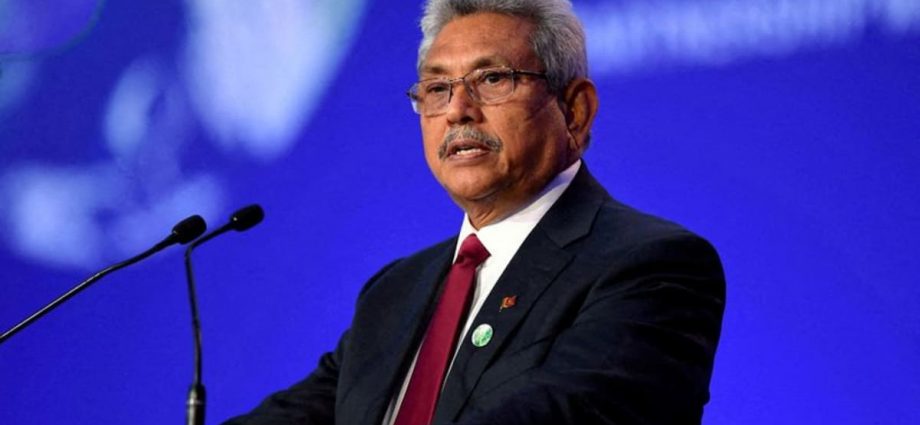
Rajapaksa’s government was accused of chaotic mismanagement as the Sri Lankan economy spiralled into an unprecedented downturn.
The crisis saw acute shortages of food, lengthy blackouts and long queues at gas stations for scarce fuel supplies after the country ran out of foreign currency to pay for vital imports.
“He can’t live freely as if nothing has happened,” said Stalin, who was named for the former Soviet leader by his leftist father.
Rajapaksa arrived at the main international airport in Colombo and was garlanded with flowers by a welcoming party of ministers and senior politicians as he disembarked.
He was driven in a security convoy to a new official residence in the capital provided to him by the government of his successor, President Ranil Wickremesinghe.
Rajapaksa’s younger brother Basil, the former finance minister, met with Wickremesinghe last month and requested protection to allow the deposed leader to return.
Rights activists have vowed to press for Rajapaksa’s prosecution on a litany of charges, including his alleged role in the 2009 assassination of prominent newspaper editor Lasantha Wickrematunge.
“We welcome his decision to return so that we can bring him to justice for the crimes he has committed,” Tharindu Jayawardhana, a spokesman for the Sri Lanka Young Journalists’ Association, said Friday.
Several corruption cases lodged against Rajapaksa stalled after he was elected president.
Rajapaksa also faces charges in a US court over Wickrematunge’s murder and the torture of Tamil prisoners at the end of the island’s traumatic civil war in 2009.

